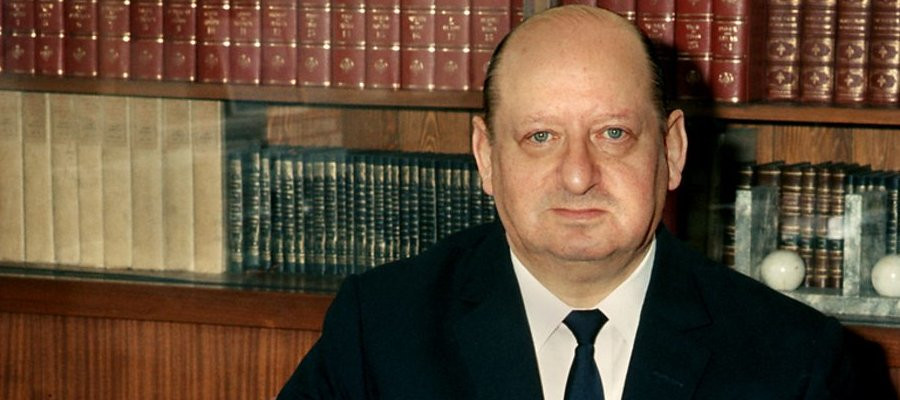
Dennis Potter
The name Dennis Potter resonates with both excitement and controversy in the realm of British playwriting. Born on May 17, 1935, in the small town of Berry Hill, Gloucestershire, Potter would go on to become a trailblazer in his field, challenging conventional narrative structures and exploring the depths of human emotion. With a career spanning four decades, Potter left an indelible mark on the British theatrical landscape, crafting works that continue to captivate audiences to this day.
Dennis Potter’s parents were Walter Edward Potter, a coal miner, and Margaret Constance, who lived in a rural mining area near the border of Gloucester and Wales. He went to Bell’s Grammar School at Coleford after passing the eleven-plus in 1946. He moved to London for most of his secondary education at St. Clement Danes Grammar School in Hammersmith. There, his uncle sexually abused him, a trauma that he would often refer to in his writing. In 1993, he referred to this incident as the reason why he changed his career from newspaper journalism to screenwriting: “I had to find different words with different functions. But why? Why, why, why; the same question I desperately repeated to myself without any answer or any way to tell my mother or my father, when I was ten years old, between V.E. Day and V.J. Day, I was caught by an adult’s sexual desire and robbed of my innocence.”
He stayed in London when his family moved back to the Forest of Dean in 1952, and then served in the Intelligence Corps of the British Army from 1953 to 1955 and studied Russian at the Joint Services School for Linguists. He got a State Scholarship to New College, Oxford, where he learned philosophy, politics and economics.
The Glittering Coffin, Potter’s first non-fiction book, came out in 1960. The book reflected on the transformation of England in the post-war boom. The next book was The Changing Forest: Life in the Forest of Dean Today (1962). This book explored the issues of class and social mobility and showed an early interest in the role of the mass media in British culture.

Potter turned to television when Daily Herald journalist David Nathan persuaded him to collaborate on sketches for That Was the Week That Was. Their first piece was used in the edition of 5 January 1963. The following year, Potter stood as the Labour Party candidate for Hertfordshire East, a safe Conservative Party seat. By the end of the unsuccessful campaign, he claimed that he was so disillusioned with party politics that he didn’t even vote for himself. Potter now embarked on work as a television playwright. He had begun to suffer in 1962 from a condition known as psoriatic arthropathy, causing arthritis to develop in his joints as well as affecting his skin with psoriasis, a debilitating ailment that made any attempt for him to follow a conventional career path futile.

Potter commenced his career as a television playwright with The Confidence Course, a play that unfortunately no longer exists in the archives. This production, which Potter had initially developed as a novel, was showcased as part of the BBC's The Wednesday Play series in 1965. The play delved into the Dale Carnegie Institute, and when shown it attracted legal threats from the organization itself. Despite disowning The Confidence Course and excluding it from his Who's Who entry, Potter’s first use of the technique of breaking the fourth wall would later become trademarks of his body of work.

Alice, Potter's subsequent play, chronicles the intricate relationship between Charles Lutwidge Dodgson (known by his pseudonym Lewis Carroll) and Alice Liddell—the muse behind Alice in Wonderland. However, this portrayal garnered objections from Dodgson's descendants and Macmillan Publishers due to its depiction of Dodgson and Alice’s association.

Among Potter's most revered works during this era were Stand Up, Nigel Barton! and Vote, Vote, Vote for Nigel Barton—a pair of semi-autobiographical plays featuring Keith Barron. Stand Up, Nigel Barton! explores the journey of a miner's son navigating Oxford University and grappling with conflicting worlds. It culminates in Barton's involvement in a television documentary. In Vote, Vote, Vote for Nigel Barton!, the same character emerges as a Labour candidate whose disillusionment with electoral politics mirrors Potter's own encounters. Both plays received accolades from critics but caused significant tension within the BBC due to their potentially incendiary critiques on party politics.

What set Potter apart from his contemporaries was his unapologetic portrayal of raw human emotions. Potter's exceptional writing also showcased his unparalleled ability to craft compelling dialogue. His characters were multi-dimensional, flawed yet relatable, with their complexities often revealed through sharp and witty exchanges. Potter's dialogue was poetic and lyrical, elevating his stories beyond mere entertainment to thought-provoking pieces of art. His television dramas mixed fantasy and reality, the personal and the social, and often used themes and images from popular culture.

In his works, he fearlessly confronted themes of sexuality, violence, and social inequality, challenging the norms of society and pushing the boundaries of what was considered acceptable on television. By intertwining gritty realism with surreal moments, he created a distinct style that forced audiences to confront uncomfortable truths. This ability to seamlessly blend reality and fantasy allowed audiences to view the world through a different lens, provoking thought and reflection long after the curtains had fallen. One of his most iconic and groundbreaking productions was his Play for Today offering Blue Remembered Hills, an extraordinary work showcasing Potter's ability to craft a compelling narrative. One of the remarkable aspects of this play is Potter's decision to cast adult actors in child roles. This deliberate choice adds depth and complexity to the characters.

After creating sixteen individual TV dramas, Potter, now a highly respected and original TV playwright, composed his first musical fantasy, Pennies from Heaven. He wanted to write something like a novel for TV, and he used ‘Pennies’ to contrast the cheerful and romantic tunes of 1930s pop songs with the sad and desperate events of the Great Depression. Through a combination of musical numbers and stark realities, he crafts a tale that presents the complexity of human relationships with a rawness rarely seen. When the American director Herbert Ross saw Pennies from Heaven on television, he contacted Potter about the prospect of adapting the series for the big screen. However, Potter became disillusioned with the film treatment as the studio demanded continual rewrites of the script and made significant cuts to the film after initial test screenings.

Potter's willingness to explore controversial themes was evident in his groundbreaking play, Brimstone and Treacle. Initially written for television in 1976 but banned by the BBC (it remained untransmitted until 1987), it was later adapted for the stage, causing a stir amongst audiences and critics alike. The play delves into the darkest corners of morality, exploring themes of evil, redemption, and the nature of human empathy. Potter's fearless approach to the subject matter, combined with his razor-sharp dialogue, creates an unsettling experience that forces audiences to question their own moral compass.
Potter had become accustomed to controversy. Critics accused him of indulging in gratuitous violence and explicit language for shock value alone. However, counterarguments suggest that his use of such elements served a larger purpose, illuminating the dark recesses of the human psyche that are often left unexplored.

One of Potter's most notable works, The Singing Detective, catapulted him to international acclaim. Originally aired as a television series in 1986, it showcased his mastery of intricate plotlines and multi-dimensional characters. Set in the post-war era, the protagonist, Philip Marlow, a bedridden writer suffering from a debilitating skin condition, enters a hallucinatory world where his imagination intertwines with reality. Potter's unconventional narrative structure and the interplay between past and present, challenge traditional notions of linear storytelling.

Sadly, Dennis Potter's life was cut short in 1994, when he succumbed to pancreatic cancer at the age of 59. However, his impact on the world of theatre and television remains immeasurable. His daring narratives and innovative storytelling techniques continue to influence playwrights and screenwriters across the globe. His legacy endures through his body of work, which serves as a testament to his genius and originality which will continue to captivate audiences for generations to come.
Published on October 4th, 2023. Written by Mark Turner-Box for Television Heaven.


